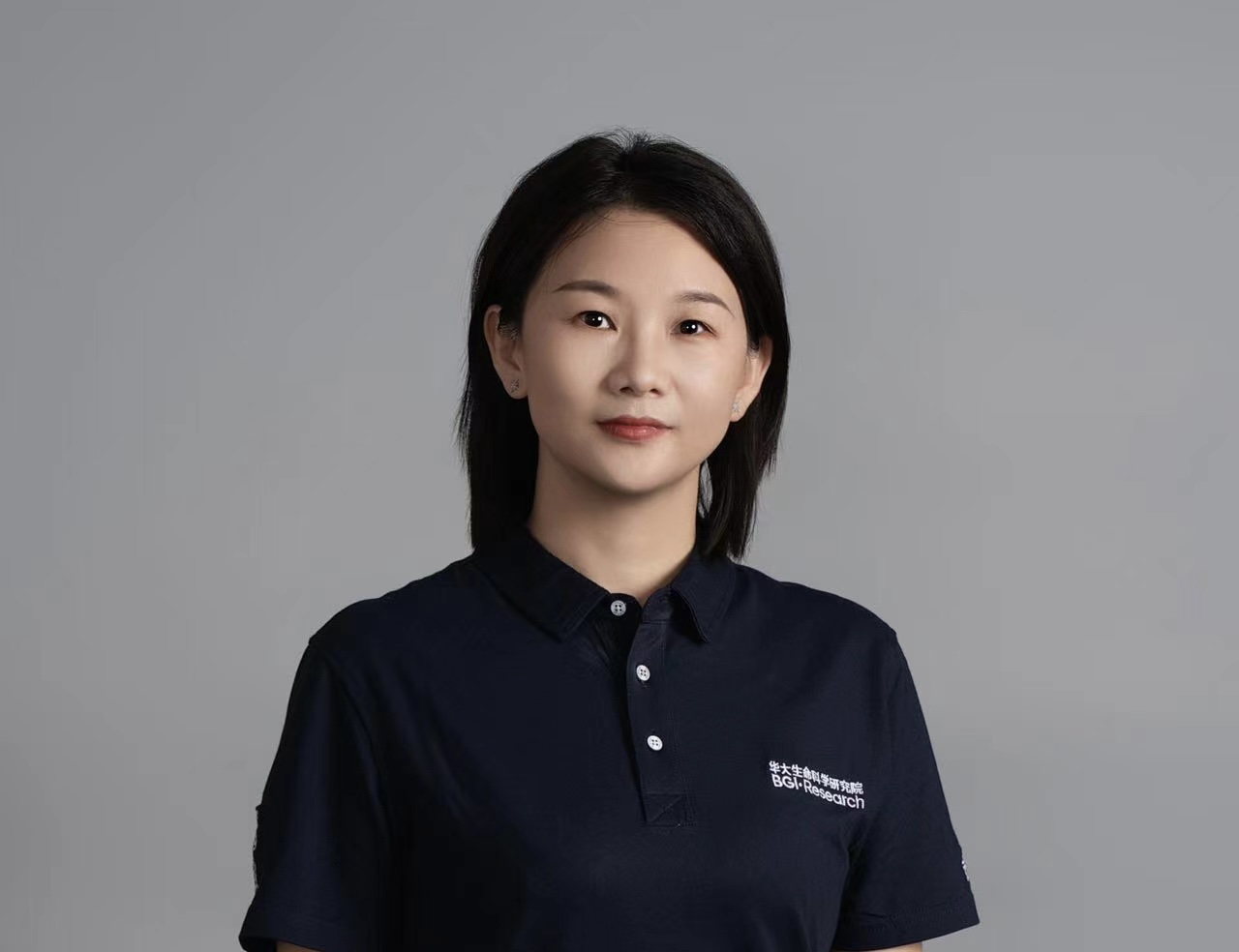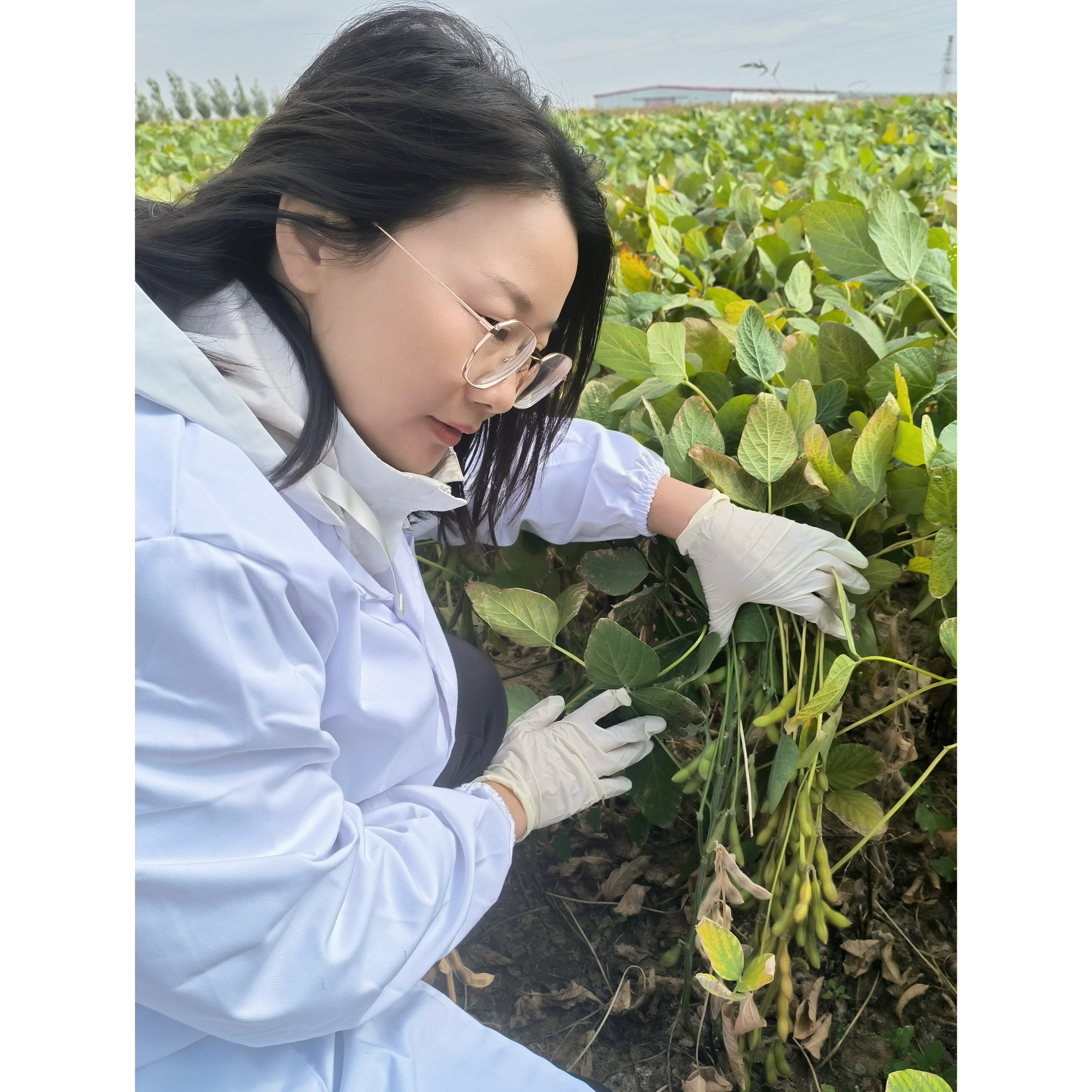- CN
Oct 09, 2023

In the world of scientific inquiry, there are individuals whose passion for understanding the mysteries of life drives a relentless pursuit of knowledge.
Dr. Wang Yayu, a scientist from the Institute of Digital Earth at BGI-Research, stands as one such luminary. Her journey into the intricate realm of life sciences has been nothing short of captivating. From early childhood curiosities about the vitality of plants to becoming a trailblazing researcher in plant microbiology, Wang's trajectory is a testament to the power of unwavering curiosity and dedication to unraveling the secrets of the natural world.
Join us as we embark on an insightful journey through Wang's life and work, gaining unique perspectives on the convergence of science, nature, and personal fulfillment.
Question: How did you embark on the path of life sciences, and why did you choose plant microbiology as your research focus?
Wang Yayu: I have always had a fascination with observing various plants since I was a child and I've always felt that they represent a positive and vibrant force of life. One day, I noticed that the leaves of the garlic sprouts in our vegetable garden had developed many spots and were wilting in the ground, so I asked my mother what the reason was. She told me that the garlic sprouts had "cancer" and that no medicine could cure them. At that time, I didn't yet understand that these spots were actually caused by plant pathogens.
During my secondary school years, I realized that behind all the natural phenomena lay a wealth of knowledge in life sciences. Therefore, when I entered university, I chose life sciences and further understood that life is controlled by genes.
After graduating from graduate school, I joined BGI-Research. The knowledge related to genomics opened up a new world for me. I realized that through genomics technology, we could explore the genetic mechanisms behind various life phenomena. Eventually, I chose the interaction between plants and microorganisms as my research focus.
 Wang Yayu checks the plant in the field.
Wang Yayu checks the plant in the field.
Question: Could you please introduce the projects you are currently undertaking?
In 2022, we established an interaction network between foxtail millet genotypes, root microbiome, and agronomic traits using large-sample association analysis. This marked the first time we proposed genotype-dependent microbial effects. By adjusting the composition of the plant's microbiome related to its genotype, we can selectively improve the plant's adaptability and productivity in different environments. We hope that in the future, precise microbiome management can be used to design high-yielding crop varieties in the agricultural systems.
In 2023, we systematically studied the regulatory mechanisms of the efficient synthesis of active ingredients in ‘Chachi’ (Citrus reticulata, a traditional Chinese medicine) from three dimensions: soil nutrients, root microbiome, and plant gene regulation patterns, using multi-omics technologies. We identified key soil nutrients and target microbial groups that influence the quality components of Chinese herbal medicines, along with their mechanisms of action. This research provides new insights into the assessment of the authenticity of Chinese herbal medicines and supports the development of specialized microbial fertilizers for medicinal herbs.
In the future, we will continue to explore the underlying mechanisms of the "soil nutrients - crop microbiome - crop phenotype" through metagenomics and related technologies. This will aid in screening agricultural microbial resources, developing microbial agents, enhancing crop adaptability and productivity, and reducing the use of pesticides and fertilizers. These efforts are of great significance for environmental protection and the sustainable development of modern agriculture.
Question: What qualities do you believe are necessary for a career in research, and what has this work brought to you?
For a career in research, I believe having clear goals, staying updated with the latest technology and research developments in your field, summarizing current research trends and methods, and managing your projects effectively are essential. In addition to these, two crucial qualities for research are passion and perseverance. Loving your work, treating it as a career, and staying dedicated are key to achieving ideal results.
I believe independent thinking and problem-solving abilities are highly important. Students who join our research group are expected to independently handle projects, from sample collection to data generation, analysis, result interpretation, and even article writing. This not only enhances their overall skills but also fosters a sense of responsibility.
Research is essentially an exploration into the unknown, and every time we make a new discovery, I feel excited. Through my work, I feel that I am constantly growing, and this is the source of my sense of achievement and happiness.
Question: Since joining BGI-Research, what has been your biggest insight or impression in your work? Is there anyone or anything that has had a particularly profound impact on you?
Research in agricultural microbiology contributes to our understanding of agricultural system dynamics and addresses food security issues, making it crucial for the modernization and sustainable development of agriculture in our country. Being able to work in this field and contribute my efforts makes me extremely proud.
At BGI-Research, you can always find someone to consult with and learn new knowledge from. As long as you are willing to learn, BGI-Research provides many opportunities and spaces for you to grow.
I've learned a lot from my predecessors. Doing research requires both ambitious goals and practical work. You need to think big and design projects from the perspective of 'big science,' but you also need to be diligent in completing every detail. Furthermore, teamwork is essential because it combines knowledge from different disciplines for more effective problem-solving.
 Wang Yayu likes to play the guitar in her spare time.
Wang Yayu likes to play the guitar in her spare time.
Question: Aside from your research, what other interests do you have in your personal life?
In my spare time, I try to spend as much time as possible with my family. I enjoy outdoor activities with them, such as hiking and trekking. Nature has a strong healing power and can help people relax, and outdoor activities contribute to our physical well-being and mental agility.
Additionally, I have other hobbies like gardening, baking, and music. Taking care of plants is a source of joy in my life and seeing them flourish brings me happiness. Recently, I've been learning to play the guitar, although mastering chords can be challenging, I'm working on it.